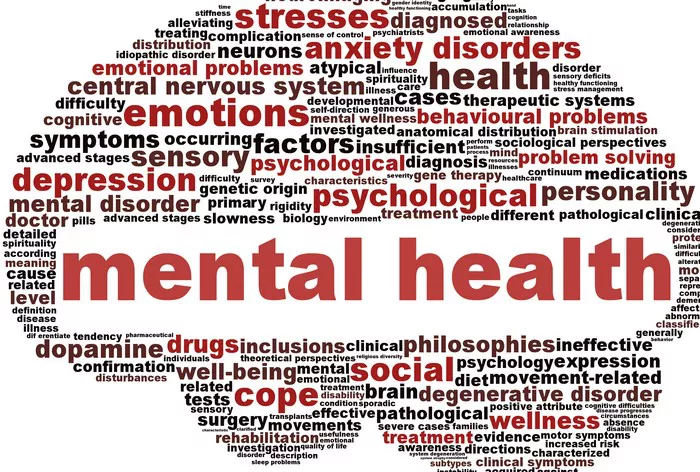In the realm of mental health, understanding and diagnosing conditions like bipolar disorder is crucial for effective treatment and management. While the process of diagnosis can be complex and multifaceted, therapists play a significant role in this journey. In this article, we delve into the question: Can a therapist diagnose bipolar disorder?
1. Clarify the Role of Therapists in Diagnosing Bipolar Disorder:
Therapists, particularly psychiatrists and psychologists, are indeed qualified to diagnose bipolar disorder. However, it’s essential to differentiate between the roles of therapists and psychiatrists. Psychiatrists are medical doctors who specialize in mental health and are licensed to prescribe medication. On the other hand, psychologists typically hold advanced degrees in psychology and focus on psychotherapy and psychological assessment.
Psychiatrists often lead the diagnostic process for bipolar disorder, especially when medication management is involved. They have the authority to prescribe medications and may collaborate with therapists to provide comprehensive care. Psychologists, while unable to prescribe medication, excel in psychological assessment and therapy, which are integral aspects of managing bipolar disorder.
2. Describe the Diagnostic Process:
The diagnostic process for bipolar disorder involves a comprehensive evaluation that considers various factors:
Clinical Interviews: Therapists conduct thorough interviews to gather information about the individual’s symptoms, life experiences, and mental health history. These interviews provide insight into the individual’s emotional and behavioral patterns.
Mental Health History: Understanding the individual’s past experiences with mental health challenges, including previous diagnoses and treatments, is essential for accurate diagnosis and treatment planning.
Family History: Since bipolar disorder can have a genetic component, therapists inquire about family members’ mental health histories to identify potential hereditary factors.
Symptom Assessment Using Standardized Tools: Therapists may use standardized assessment tools to evaluate the severity and frequency of bipolar symptoms. These tools provide quantifiable data to inform the diagnosis and treatment plan.
Ruling Out Other Potential Diagnoses: Bipolar disorder shares symptoms with other mental health conditions, such as depression and anxiety disorders. Therefore, it’s crucial to rule out other possible diagnoses through careful assessment and consideration of the individual’s symptoms and history.
3. Discuss the Limitations of Diagnosis:
Despite thorough evaluation, diagnosing bipolar disorder can be challenging due to various factors:
Complexity: Bipolar disorder presents differently in each individual, making diagnosis complex and sometimes elusive. Symptoms may vary in severity and frequency, further complicating the diagnostic process.
Misdiagnosis: In some cases, individuals may receive an incorrect diagnosis or be misdiagnosed with another condition due to overlapping symptoms or insufficient information. This highlights the importance of seeking second opinions from qualified professionals if there are doubts about the initial diagnosis.
Ongoing Assessment: Mental health conditions, including bipolar disorder, may evolve over time. Therefore, diagnosis and treatment require ongoing assessment to adapt to changes in symptoms and individual needs.
4. Provide Resources for Further Information and Support:
For individuals seeking more information and support regarding bipolar disorder diagnosis and treatment, reputable mental health organizations can offer valuable resources:
National Alliance on Mental Illness (NAMI): NAMI provides education, support, and advocacy for individuals affected by mental health conditions, including bipolar disorder. Their website offers information on diagnosis, treatment options, and local support groups.
American Psychiatric Association (APA): The APA is a professional organization representing psychiatrists in the United States. Their website offers resources for individuals seeking information on mental health conditions, including bipolar disorder, and guidance on finding qualified mental health professionals.
Finding Qualified Mental Health Professionals: When seeking diagnosis and treatment for bipolar disorder, it’s essential to find qualified mental health professionals who specialize in mood disorders. This can include psychiatrists, psychologists, and licensed clinical social workers with experience in diagnosing and treating bipolar disorder. Individuals can consult their primary care physician, insurance provider, or online directories to find professionals in their area.
Conclusion
In conclusion, therapists, including psychiatrists and psychologists, play a crucial role in diagnosing bipolar disorder. Through comprehensive evaluation and collaboration with other healthcare professionals, therapists can provide accurate diagnoses and personalized treatment plans to support individuals living with bipolar disorder.
Understanding the diagnostic process, acknowledging its limitations, and accessing reputable resources for information and support are essential steps in managing bipolar disorder effectively. By working with qualified mental health professionals and engaging in ongoing care, individuals can navigate their journey with bipolar disorder with confidence and resilience.
FAQs
Can a therapist give a diagnosis?
Yes, licensed therapists, such as clinical psychologists or psychiatrists, can diagnose mental health conditions based on their training and expertise. They use diagnostic criteria outlined in manuals like the DSM-5 to assess and diagnose various mental health disorders.
Can a Counsellor diagnose you with bipolar?
In most cases, counselors, who typically have master’s degrees in counseling or related fields, are not authorized to diagnose mental health conditions like bipolar disorder. Diagnosis usually falls within the scope of practice of clinical psychologists, psychiatrists, or other mental health professionals with specific training and credentials.
Can I ask my therapist if I’m bipolar?
Yes, you can certainly discuss your concerns about bipolar disorder with your therapist. They can help you explore your symptoms, experiences, and any relevant factors to determine whether further evaluation by a qualified professional, such as a psychiatrist, is necessary for a formal diagnosis.
Related topics:
- Finding the Right Medication for Bipolar 1 Depression: A Comprehensive Guide
- Best Medication for Bipolar Anger: A Comprehensive Guide
- The Best Benzodiazepine for Sleep and Anxiety: A Comprehensive Guide


